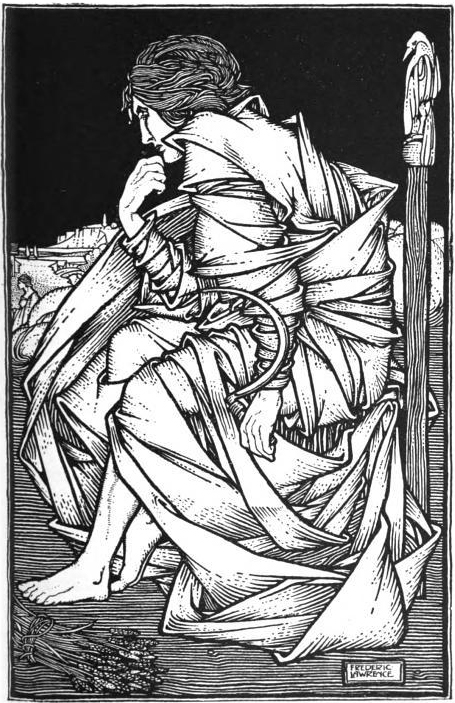|
Barey
In Norse mythology, Barri is the place where Freyr and Gerðr are to consummate their union, as stated in the ''Skírnismál'': :Barri the grove is named, :which we both know, :the grove of tranquil paths. :Nine nights hence, :there to Niörd’s son :Gerd will grant delight. : ::—''För Skirnis eðr Skirnismál'' (39)Thorpe's translation In Snorri Sturluson's account of the myth (found in ''Gylfaginning'', 37), the place is called Barrey or Barey: :And nine nights later she was to come to the place called Barrey, and then go to the bridal with Freyr. : ::—''Gylfaginning'' (37)Brodeur's translation The meaning of the name is uncertain. Barri is called a grove (''lundr'') but Bar(r)ey is probably an island (''ey'' being the Old Norse for "island")Faulkes 1988. and could be connected with Barra, one of the Hebrides islands, which was once called Barrey.Simek 1996. The meaning of the first part of the name, ''barr'', is not very enlightening for it has several meanings: "pine nee ... [...More Info...] [...Related Items...] OR: [Wikipedia] [Google] [Baidu] |
Gerðr
In Norse mythology, Gerðr (Old Norse: ; "fenced-in"Orchard (1997:54).) is a jötunn, goddess, and the wife of the god Freyr. Gerðr is attested in the ''Poetic Edda'', compiled in the 13th century from earlier traditional sources; the '' Prose Edda'' and ''Heimskringla'', written in the 13th century by Snorri Sturluson; and in the poetry of skalds. ''Gerðr'' is sometimes modernly anglicized as Gerd or Gerth. In both the ''Poetic Edda'' and the ''Prose Edda'', Freyr sees Gerðr from a distance, becomes deeply lovesick at the sight of her shimmering beauty, and has his servant Skírnir go to Jötunheimr (where Gerðr and her father Gymir reside) to gain her love. In the ''Poetic Edda'' Gerðr initially refuses, yet after a series of threats by Skírnir she is forced to yield. In the ''Prose Edda'', no mention of threats is made. In both sources, Gerðr agrees to meet Freyr at a fixed time at the location of Barri and, after Skírnir returns with Gerðr's response, Freyr laments ... [...More Info...] [...Related Items...] OR: [Wikipedia] [Google] [Baidu] |
Freyr
Freyr (Old Norse: 'Lord'), sometimes anglicized as Frey, is a widely attested god in Norse mythology, associated with kingship, fertility, peace, and weather. Freyr, sometimes referred to as Yngvi-Freyr, was especially associated with Sweden and seen as an ancestor of the Swedish royal house. According to Adam of Bremen, Freyr was associated with peace and pleasure, and was represented with a phallic statue in the Temple at Uppsala. According to Snorri Sturluson, Freyr was "the most renowned of the æsir", and was venerated for good harvest and peace. In the mythological stories in the Icelandic books the ''Poetic Edda'' and the '' Prose Edda'', Freyr is presented as one of the Vanir, the son of the god Njörðr and his sister-wife, as well as the twin brother of the goddess Freyja. The gods gave him Álfheimr, the realm of the Elves, as a teething present. He rides the shining dwarf-made boar Gullinbursti and possesses the ship Skíðblaðnir which always has a favorab ... [...More Info...] [...Related Items...] OR: [Wikipedia] [Google] [Baidu] |

